Helping island communities address conservation challenges
The world’s small island developing states are reservoirs of unique biodiversity. These nations are also highly vulnerable to the negative impacts of climate change and over-exploitation of limited remaining natural areas. CEPF grantees work with these communities to protect biodiversity, livelihoods and ecosystems that provide food, fresh water and a buffer from extreme weather events.
East Melanesian Islands Biodiversity Hotspot
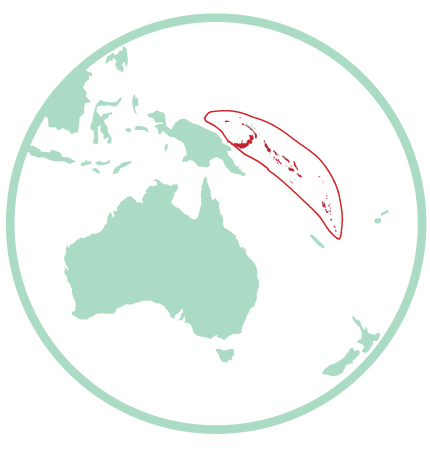
In the village of Kerepua, in the foothills of Mount Tabwemasana in the Santo Mountain Chain, CEPF grantee Live & Learn Vanuatu facilitated the creation of the Tabwemasana Community Conservation Area (CCA), the largest registered conservation area in Vanuatu.
The effort—undertaken along with the Department of Environmental Protection and other government agencies and donor partners—was both ambitious and far-reaching. Live & Learn Vanuatu assessed and promoted awareness of biodiversity, developed a management and land-use plan, and established a local CCA management committee. The project also sought to identify conservation-based livelihood projects and raise funding for plan implementation.
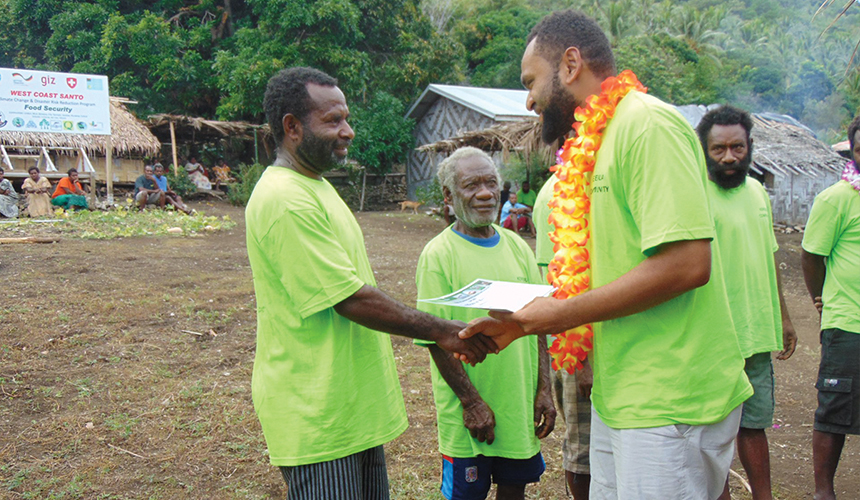
“To date, through collaboration with partners, the CCA has registered 4,849 hectares of land under Vanuatu’s Environment Protection Act,” said Live & Learn Vanuatu’s Glarinda Andre. “The CCA has also produced a management action plan to manage and monitor threatened species within the area.”
The plan has received official signoff from Vanuatu’s Director of Environment, Reedly Tari.
A land-use planning workshop, meanwhile, resulted in the mapping of the CCA to define the various uses—such as resource harvesting, hunting, and untouched forest areas—to aid future management of the Tabwemasana CCA. Live & Learn Vanuatu’s efforts also helped to create an eight-member local CCA management committee, and resulted in the printing and circulation of a booklet on the plants and animals of the Mount Tabwemasana CCA.
The work is not over, though. With CEPF financial support, the grantee will soon begin to train project participants to conduct species monitoring, develop a data reporting system and implement a financing model. In addition, Live & Learn Vanuatu-supported field activities aim to enhance ecotourism opportunities at Mount Tabwemasana.
Madagascar and the Indian Ocean Islands Biodiversity Hotspot
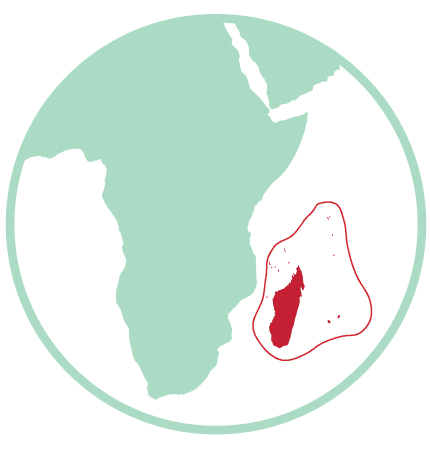
In the island nation of Comoros, CEPF grantee Dahari is working to identify conservation priorities on Anjouan Island. The government of Comoros has declared new protected areas across Anjouan and other islands, and Dahari aims to inform conservation practice in these areas through research targeted at endemic fauna and flora.
Because the Comoros lacks proper identification of conservation priorities and detailed species research, Dahari has performed multiple species distribution analyses and animal ecology studies, important first steps toward developing species conservation plans and actions.
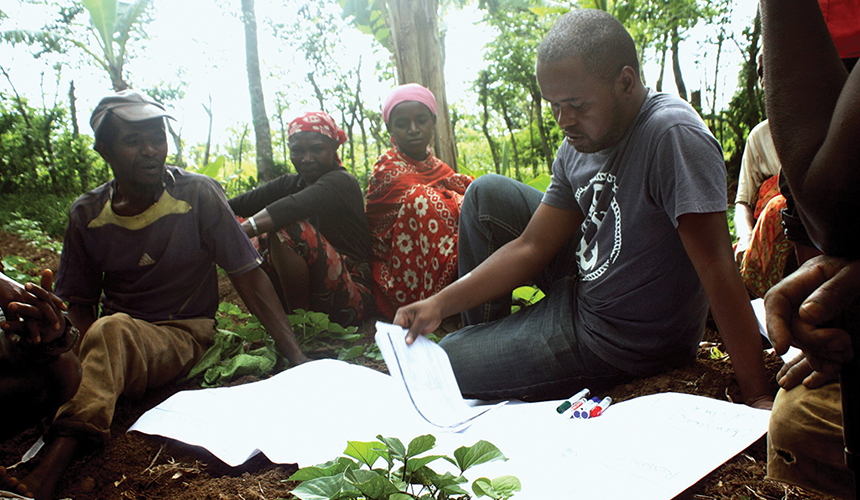
“This project aims to fill the gaps in that understanding,” said Hugh Doulton, Dahari’s strategic advisor. “Our previous research in the Comoros led to the Livingstone’s flying fox being upgraded from Endangered to Critically Endangered [on the IUCN Red List of Threatened Species].”
Dahari’s five-member local ecology team is using research on the flying fox as the basis for a conservation agreement scheme to protect roost sites. The conservation agreements offer incentives to local landowners to reforest and protect these sites. “I have agreed not to cut trees in the parcel around the roost site and to reforest. Dahari provides me with materials and seeds in exchange,” said Abdouroihamane, a local landowner and one of the first to sign the agreement. “The situation is good for me.”
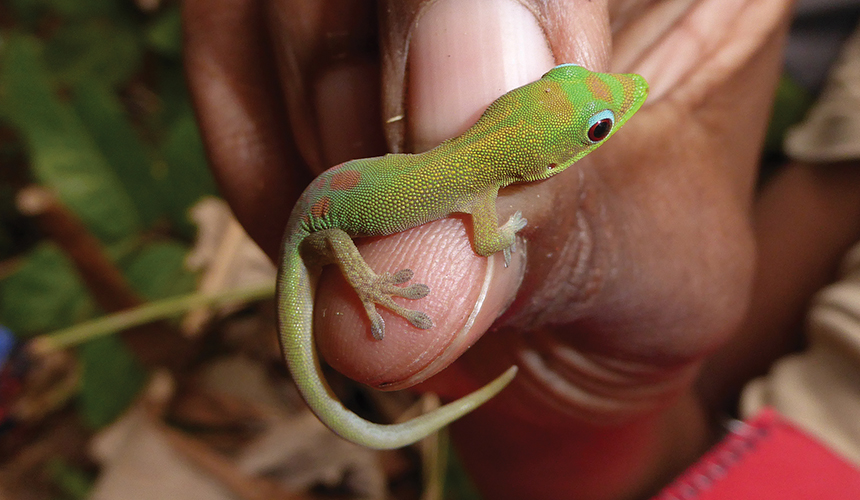
Data on other species’ distribution levels are also helping to identify key areas for conservation efforts.
At the village level, another of Dahari’s aims was to have a local participatory monitoring program of biodiversity and ecosystem health. That was established in mid-2018, and Dahari is training local representatives to take over that monitoring.
Dahari is also mapping the remaining forests of the Comoros and studying deforestation drivers to help improve efforts to reduce habitat loss—work that CEPF is supporting through a second grant focused on watershed reforestation and management.
Photo Credits
Director of Environment Reedly Tari officially handing registration certificate to the Tabwemasana CCA chairman at Kerepua Village, Vanuatu. © Rolenas Tavue Baereleo/Ecolifelihood Development Association
Dahari project participants meet on Anjouan Island, Comoros. © Dahari
Gold dust day gecko (Phelsuma laticauda) found on Anjouan Island. © Dahari



